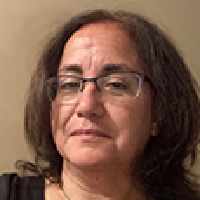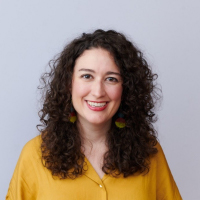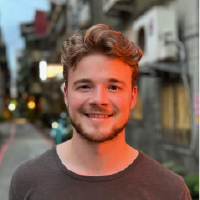OSCON 2025 Speakers
Keynote Speakers

Dr. Steve Crawford
Astronomer and Science Data Officer for the Science Mission Directorate of NASA, Dr. Crawford previously managed the teams maintaining the calibration software for the Hubble Space Telescope and building the calibration software for the Webb Space Telescope and Roman Space Telescope. He is the program officer for NASA's support of open-source software tools, frameworks, and libraries.

Keith Crandall
Director of the Computational Biology Institute and the Genomics Core at GW, Prof. Crandall is a pioneer in bioinformatic approaches for studying microbial pathogenesis, candidate gene detection, and variant associations with disease and treatment states. His ModelTest paper was highlighted by Nature in 2014 as one of the top 100 cited papers in the history of science.

Andrea Fletcher
Chief Digital Strategy Officer (CDSO) at the Centers for Medicare and Medicaid Services (CMS). She is responsible for digital transformation and modernization efforts, promoting interoperability and public access to health data, and recruiting the next generation of technical talent into federal service.

Remy DeCausemaker
Open Source Lead for the Digital Service at the Centers for Medicare & Medicaid Services (CMS.) He helps developers, designers, and other contributors work with civil servants to create open accessible healthcare technology projects, programs, and policy.
Featured Speakers

Inessa Pawson
Inessa is an active contributor to the Python ecosystem (NumPy, NumFOCUS, PyOpenSci, SciPy conference, PyCon US Maintainers Summit). In her role as Open Source Program Manager at OpenTeams, she leads initiatives focused on widening the contributor pipeline and bringing funding to more open source projects.

Brandon Tabaska
Brandon Tabaska is an Open Source Developer Evangelist at Nava, where he works on the simpler.grants.gov project, helping connect developers to open source opportunities and fostering a growing contributor community. Prior to that, Brandon contributed to the Massachusetts Paid Family and Medical Leave project, improving accessibility and streamlining benefits delivery. Before joining Nava, he worked at NASA Ames Research Center on the Mission Assurance Systems project, focusing on enhancing software reliability for critical missions. Outside of work, Brandon enjoys gardening and diving into a good book.
Regular Session Presenters

Shailiza Mayal
Shailiza is a Senior Manager at Samagra, a mission-driven governance consulting firm based in Delhi, India. She leads the Code for GovTech initiative amongst other programs, which aims to build developer communities around open source products focused on social impact (Digital Public Goods and beyond...). She has nearly a decade of experience in strategy and operations consulting working with different government agencies and political offices across domains like education, foundational learning, allied farming activities, service delivery, etc with a key focus on improving governance with technology. She is an engineer turned liberal studies post graduate turned public sector governance enthusiast!

Paul Barrett
Paul is an astrophysicist in the Department of Physics. His research interest is in multi-wavelength observations of interacting binary stars called cataclysmic variables. He has over 50 peer reviewed publications. He has also been developing scientific software for over 35 years, beginning with the original IBM AT personal computer. He was instrumental in the development of Scientific Python about 25 years ago. He has since migrated to the Julia high-performance scientific programming language.

JP Helveston
John Paul (JP) is an Assistant Professor in the Department of Engineering Management and Systems Engineering at GWU. His research focuses on understanding how consumer preferences, market dynamics, and policy affect the emergence and adoption of low-carbon technologies, including electric vehicles and renewable energy technologies. He also studies China's critical role in developing and mass producing these technologies. He has expertise in choice modeling, survey design, data analysis, and the R programming language. He holds a Ph.D. and M.S. in Engineering and Public Policy from Carnegie Mellon University and a B.S. in Engineering Science and Mechanics from Virginia Tech.

Pingfan Hu
Pingfan received a M.P.E. degree in Mechanical Engineering from Sydney University, and a B.S. degree in Industrial Engineering from Penn State University. Prior to joining GW, Pingfan had 4 years of work experience in supply chain and engineering management. His primary research interest is the adoption of PEV smart charging, with an expansion to V2G charging. He is currently working on a study using conjoint analysis to assess people’s willingness to participate in such programs. He is also a core developer of the surveydown survey platform.

Ben Balter
Ben Balter is the Director of Hubber Enablement within the Office of the COO at GitHub, ensuring all Hubbers can do their best (remote) work. Previously, he was the Director of Technical Business Operations for Engineering and Chief of Staff for Security. As the Senior Product Manager for Community and Safety, Ben shipped more than 500 features in support of open source. Ben also served as GitHub’s Government Evangelist, leading the efforts to encourage 2,000+ government organizations across 75 countries to adopt open source philosophies for code, data, and policy. Ben holds a JD, MBA, and BA from GW.

Dolsy Smith
Dolsy (he/him) has worked at GW in a variety of roles since 2005. Currently, he builds and maintains open-source software as part of LAI's Scholarly Technology Group, and he supports users' access to and discovery of library resources through his work with Alma and Primo. He also teaches workshops and offers consultations on computational topics. As part of LAI's Scholarly Communications Team, he advocates for more inclusive and equitable access to scholarly publications.

Daphna Atias
An educational developer at GW's Center for Teaching Excellence, Daphna joined GW in April 2020. Her areas of interest include inclusive and anti-racist teaching practices, alternative grading models, training graduate student instructors, and the teaching of writing. A specialist in early American literature, she has taught in several environments, including secondary and undergraduate literature and composition courses.

Emily Blumenthal
Emily is a Data Services Librarian with expertise in data management, statistical analysis, and research design. She has a strong background in quantitative data and statistical theory and is proficient in tools such as Excel, MATLAB, Qualtrics, R, SAS, and SPSS. Before joining GW, she was an adjunct professor of psychology, teaching research methods, statistics, and cognitive sciences. Emily holds a Ph.D. from the University of Washington and has conducted research on infant brain development and early identifiers of Autism Spectrum Disorders.

Marcus Peerman
As a Systems Administrator in the Scholarly Technology Group at GW LAI, I bring over nine years of experience in public school education within the Richmond Tri-city area. My expertise bridges technology and education, allowing me to support and enhance cloud infrastructure environments effectively.
I specialize in access control provisioning and resource management for server administration in cloud-based systems. Additionally, I am passionate about fostering inclusive computational thinking, ensuring diverse perspectives and equitable access to technological resources. Through consultations and workshops at GW LAI, I help create an engaging learning environment that welcomes all.

Max Turer
Max Turer is the Senior Web Developer at GW Libraries & Academic Innovation. Before coming to GW, Max worked as a software developer with a frontend/UI/UX focus, having transitioned into development work from UI/UX Design after getting involved in the Creative Coding community. Max has a particular interest in sharing the power of tech with a broader community, such as teaching programming to beginners, emphasizing the potential of programming in visual art, and contributing to and advocating for the use of open source tools.

Micah Sanders
Micah Sanders is a Senior Research Associate at the George Washington Institute of Public Policy (GWIPP) Program on Skills, Credentials and Workforce Policy (PSCWP). Prior to joining GW, he was a Research Project manager for Educational Testing Service’s Policy Evaluation and Research Center and an Education Research Analyst for the State of Washington’s Education Research and Data Center. In these roles he has served as an expert in higher education policy and data analytics for topics ranging from skills to education finance and financial aid.

Bridget Almas
As the Director of Operations for Community Supported Technologies, Bridget works on guiding the effectiveness, impact, and long-term sustainability of the open-source programs for which Lyrasis serves as the organizational home, currently ArchivesSpace, CollectionSpace, DSpace, Fedora and VIVO. She has worked throughout her career at the intersection of libraries, academic research, data, and technology across the non-profit, academic, and commercial sectors.

Glen MacLachlan
Dr. MacLachlan earned his PhD in 2004 in experimental nuclear physics and has published scholarly articles in multiple disciplines including nuclear physics, nuclear methods and instrumentation, and astrophysics. Since 2013, Dr. MacLachlan has worked to support researchers throughout The George Washington University and has been a key contributor to several high-impact projects, including GW's flagship supercomputer, edu-cluster, and high throughput cluster.

Michael Deeb
With 15 years in software, Mike combines technical expertise with a passion for public-interest technology. He played a key role in developing New Jersey’s Small Business Navigator and helped revitalize Civic Tech DC, fostering collaboration between technologists, non-profits, and local governments. As the founder of Keeplist.io and TealWolf Consulting, he focuses on open data, ethical AI, and knowledge management. Mike believes in building practical, scalable solutions through iteration and community-driven problem-solving, always looking for ways technology can create meaningful impact in civic and non-profit spaces.

Alma Trotter
Alma works on data journalism and data liberation at CareSet, a healthcare research organization. She is also a Director at the nonprofit Civic Tech DC, where she helps technologists improve the DMV area and beyond.

Mio Diaz Santiago
Senior Software Engineer with the Open Source Program Office at Capital One, Mio has bachelor of science degrees in Developmental and Genetic Biology and Software Engineer from Penn State University. Her team enables engineers to make contributions to open source projects from their company devices while preventing the exposure of company secrets.

Colin Fleming

Kristijan Armeni
Kristijan Armeni is a research scientist with doctoral (Donders Institute) and postdoctoral training (Johns Hopkins University) in computational neuroscience, investigating language processing in the human brain (EEG/MEG) and in artificial cognitive systems (language models). He is an advocate of open science, occasional contributor to open source analysis packages, and maintains a general interest in public interest technology. As an active member of the US Research Software Engineer Association (US-RSE), he is currently co-organizing the local Delaware/Maryland/Virginia RSE interest group.

Nneka Hector
From Political Advocacy & Fundraising websites to Enterprise-level platforms built on CMSs like Drupal, WordPress, and Sitecore, I understand the importance of user engagement and great web design. Nneka currently serve as the Director of Web Development at DSFederal, a government IT consulting firm, and also leads development efforts at a web development consulting firm, Open Pixel. Additionally, I am a co-organizer for Drupal GovCon.

Andrew Shao
Andrew Shao is an organizer and board member of Civic Tech DC and a contributor to the Ballot Initiative Project. He also serves on the board of Healthcare for Change, a nonprofit dedicated to addressing the social determinants of health.Andrew holds a B.A. in Government and Politics and an MBA from the University of Maryland, as well as a Master’s in Information Systems Engineering from Johns Hopkins University. He has a background in data engineering.

Jay Qi
Jay is an experienced data scientist who has worked on data projects across diverse sectors, from education to water resources to industrial engineering. At DrivenData, he helps mission-driven organizations and institutions leverage machine learning, data science, and data engineering for social impact. He also maintains and contributes to a variety of open source projects such as cookiecutter-data-science, a data science project template; cloudpathlib, a library for working with cloud storage; erdantic, a tool for generating entity relationship diagrams; and deon, a data science ethics checklist.

Alexa Alice Joubin
Alexa Alice Joubin directs the Digital Humanities Institute and is professor of English and International Affairs at George Washington University. She is a faculty of the GW Trustworthy AI Initiative and an affiliate at the NSF Institute for Trustworthy AI in Law & Society. In 2024, she was named the inaugural Public Interest Technology Scholar. She researches and advocates trustworthy humanistic AI in higher education and the use of AI to enhance social justice.

Daniel Kerchner
As part of his role as a Senior Software Developer at GWLAI, Dan teaches workshops on R and Python, advocates for open and reproducible research, and shares his skills and insight with the GW community through individualized consultations to help GW students, faculty, and researchers succeed in their data analysis and visualization projects.
Dan is also a PhD student in the Health Data Science-Bioinformatics program at the Milken School of Public Health, and is a certified and experienced Data Carpentries instructor. As an Adjunct Instructor, Dan co-created and taught Introduction to R Programming in Public Health and Biomedical Research.

Emmanuel Teitelbaum
Emmanuel Teitelbaum is an Associate Professor of Political Science and International Affairs at George Washington University, where he teaches courses on comparative political economy and data science. His research focuses on labor rights, political economy, and the intersection of class conflict, democracy, and development, with a regional focus on South Asia. He is a managing editor for the Journal of Development Studies and is affiliated with the Sigur Center for Asian Studies and the Institute for International Economic Policy. In his spare time, he enjoys running, juggling, and racing his 2007 Subaru STI at local autocross and track events.

Tejaaswini Narendran

Martelle Esposito
Martelle Esposito is the Partnerships and Evaluation Manager at Nava PBC and co-directs Nava Labs, a research lab focusing on prototyping technology policy and systems changes and advocating for their adoption. Before joining Nava, Martelle managed a WIC services innovation lab at the Johns Hopkins Bloomberg School of Public Health (JHSPH) and oversaw public policy development, advocacy, and program implementation at non-profits. She holds an MS and MPH from Tufts University in food and health policy and is currently pursuing a DrPH in Implementation Science at JHSPH, studying strategies for closing the gap between policy and implementation.

Ben Sando
Sando works alongside a team of programmers, designers, and organizers to grow the CIB Mango Tree project. The CIB Mango Tree is an all-volunteer, open source project that provides free tools for researchers to detect disinformation campaigns and inauthentic behavior online. In his day job, Sando is a foreign affairs researcher at the Global Taiwan Institute think tank, specializing in influence operations by authoritarian governments.

Helen Glover

Jonathan Guyer
Jon Guyer is a computational materials scientist in the NIST Materials Science and Engineering Division. His research interests involve the modeling of materials phase transformations. He is co-developer of FiPy, a Python-based partial differential equation package, originally designed for phase transformation modeling, but now cited in publications from a wide range of scientific disciplines. Jon was co-chair of the SciPy conference from 2020 through 2022.

Richard Bullington-McGuire
Richard Bullington-McGuire has over 35 years of professional technology experience and is an avid cyclist and community organizer. He is an experienced for-profit and not-for-profit entrepreneur and leader. Richard is a published author, most recently with the Packt publishing book Docker for Developers, released in 2020. He founded The Obscure Organization in 1995, which promotes creativity and community through technology. You can find him cycling on the roads and trails near his home in Arlington, Virginia.

Alan Lujan
Dr. Alan Lujan is a core developer and maintainer of the open-source toolkit Econ-ARK, reflecting his expertise in computational economics. His research focuses on quantitative macroeconomics and structural econometrics, specializing in household finance and inequality. He holds a PhD in Economics and contributes to Johns Hopkins University as a Program Coordinator and lecturer for the MS in Applied Economics program.
At Johns Hopkins, previously, he served as a Visiting Assistant Research Professor. Dr. Lujan applies advanced computational methods to study financial decision-making, integrating theory with techniques and examines savings, debt, and the impact of financial policies.
Lightning Talk Presenters

Paul Barrett
Paul is an astrophysicist in the Department of Physics. His research interest is in multi-wavelength observations of interacting binary stars called cataclysmic variables. He has over 50 peer reviewed publications. He has also been developing scientific software for over 35 years, beginning with the original IBM AT personal computer. He was instrumental in the development of Scientific Python about 25 years ago. He has since migrated to the Julia high-performance scientific programming language.

Anket Patil

Dhairya Shah

Pingfan Hu
Pingfan received a M.P.E. degree in Mechanical Engineering from Sydney University, and a B.S. degree in Industrial Engineering from Penn State University. Prior to joining GW, Pingfan had 4 years of work experience in supply chain and engineering management. His primary research interest is the adoption of PEV smart charging, with an expansion to V2G charging. He is currently working on a study using conjoint analysis to assess people’s willingness to participate in such programs. He is also a core developer of the surveydown survey platform.

Joseph Kilgore
Joseph is a 4th Year PhD student at GWU studying computer engineering with a focus on biologically inspired artificial intelligence. His current work focuses on taking biological neural network models and translating them for future neuromorphic hardware implementations.

Ryan Watkins
Ryan is a Professor at George Washington University in Washington DC. He is the program director of the Educational Technology Leadership (MA) program, faculty lead of the interdisciplinary Human-Technology Collaboration (PhD) concentration, and Director of Education for the GW Trustworthy AI initiative. He has authored 12 books and over 100 articles/chapters, and is the developer of several web platforms (including LLMinScience, Code2Learn, We Share Science, SciencePods). As an interdisciplinary researcher he explores how we create, train, interact with, and collaborate with increasing intelligent technologies in both the classroom and workplace; in addition he also studies needs and needs assessments.

Misty Trunnell
Misty is a Research and User Services Librarian at GWLAI. She began engaging in open education efforts in 2022 supporting the open education faculty incentive programs offered by GW LAI and the Washington Research Libraries Consortium. Misty earned a certificate in Open Education Librarianship through the Open Education Network at the University of Minnesota this past fall semester. She is currently co-lead of GWLAI's Adopting Course Materials for Equity (ACME) grant.

John Helveston
John Paul (JP) is an Assistant Professor in the Department of Engineering Management and Systems Engineering at GWU. His research focuses on understanding how consumer preferences, market dynamics, and policy affect the emergence and adoption of low-carbon technologies, including electric vehicles and renewable energy technologies. He also studies China's critical role in developing and mass producing these technologies. He has expertise in choice modeling, survey design, data analysis, and the R programming language. He holds a Ph.D. and M.S. in Engineering and Public Policy from Carnegie Mellon University and a B.S. in Engineering Science and Mechanics from Virginia Tech.

Alex Boyd
Alex Boyd is a Software Developer with The George Washington University's Libraries and Academic Innovation team, where they assist students and faculty with incorporating software and coding in their research projects, teach introductory coding workshops, and support the library with repository and archival software.

Satya Phanindra Kumar Kalaga
I am a data scientist, researcher, programmer, and project manager. My professional journey led me through opportunities for management, data science, research, and academia, allowing me to conduct analyses in diverse environments. With proficiency in machine learning, data analysis, and full-stack development, I transform complex ideas into impactful solutions.
My experience spans leading research at GWIPP and developing innovative tools as a Full-Stack Engineer. I'm driven by the challenge of creating user-centric technologies that solve real-world problems, from digitalizing agricultural commerce to bridging academic learning with workforce requirements.

Dalton Alves
Dalton Alves is a librarian and archivist interested in technology and the open movement. He serves as the Digital Services Manager for GW Libraries and Academic Innovation. He manages the digitization of archival and specialized collections and supports archivists in collecting and preserving born-digital and web records. He is also interested in scholarly communications and assists scholars throughout the research and publishing process. With experience in libraries, museums, and archives, his work focuses on making cultural heritage collections more open and accessible to all.

Midori Bonner (presenting with Anna Grettano)
Midori Bonner and Anna Grettano are BFA Undergraduate students at the George Washington University. Both are first-year students in the Corcoran School of Art and Design and are interested in the intersection of Artificial Intelligence and digital art. Specifically, they are researching how AI can help artists explore new art styles and simplify the creative process in a way that more people can utilize.

Nina Hrivnak

Kristijan Armeni
Kristijan Armeni is a research scientist with doctoral (Donders Institute) and postdoctoral training (Johns Hopkins University) in computational neuroscience, investigating language processing in the human brain (EEG/MEG) and in artificial cognitive systems (language models). He is an advocate of open science, occasional contributor to open source analysis packages, and maintains a general interest in public interest technology. As an active member of the US Research Software Engineer Association (US-RSE), he is currently co-organizing the local Delaware/Maryland/Virginia RSE interest group.

Prudhvi Chekuri
Prudhvi is a Master’s student in Data Science at GW and a researcher at the GW Institute of Public Policy (GWIPP). As a contributor to LAiSER, an open-source AI tool for skill extraction, Prudhvi has focused on optimizing its performance by integrating advanced models and implementing optimization techniques to enhance computational efficiency. Their contributions earned them recognition at GW's 2024 Student Open Source Awards, where they received individual and project awards. Passionate about open-source collaboration, they aim to showcase how performance optimizations can improve the accessibility and scalability of AI-driven tools for education, workforce analytics, and public policy research.

Krishna Sai Mamandur Amaranarayanan

Vivek Kanikanti

Jonathan Starr
Rohan Rajesh
Rohan Rajesh is a senior at the George Washington University School of Business, pursuing a double major in Finance and Data Science.
Drew Sotell
Drew Sotell is a senior at the George Washington University School of Business, majoring in Business with a concentration in Finance.
Dane Van Horn
Dane Van Horn is a junior at the George Washington University School of Business, majoring in Finance and Computer Science.

Mahdi Baghbanzadeh
Mahdi Baghbanzadeh is a Ph.D. candidate in Health Data Science at George Washington University. With +10 years of experience spanning academia and industry, he specializes in machine learning and statistical analysis. His current research focuses on developing language models for DNA sequences. Before pursuing his doctorate, he worked as a Data Scientist at leading companies, implementing solutions that improved business outcomes. He has made notable contributions to open-source projects, including developing deepBreaks and contributing to Hugging Face Transformers. His research has been published in prestigious journals like GigaScience and BMJ Public Health, and he has received multiple awards at GWU.

